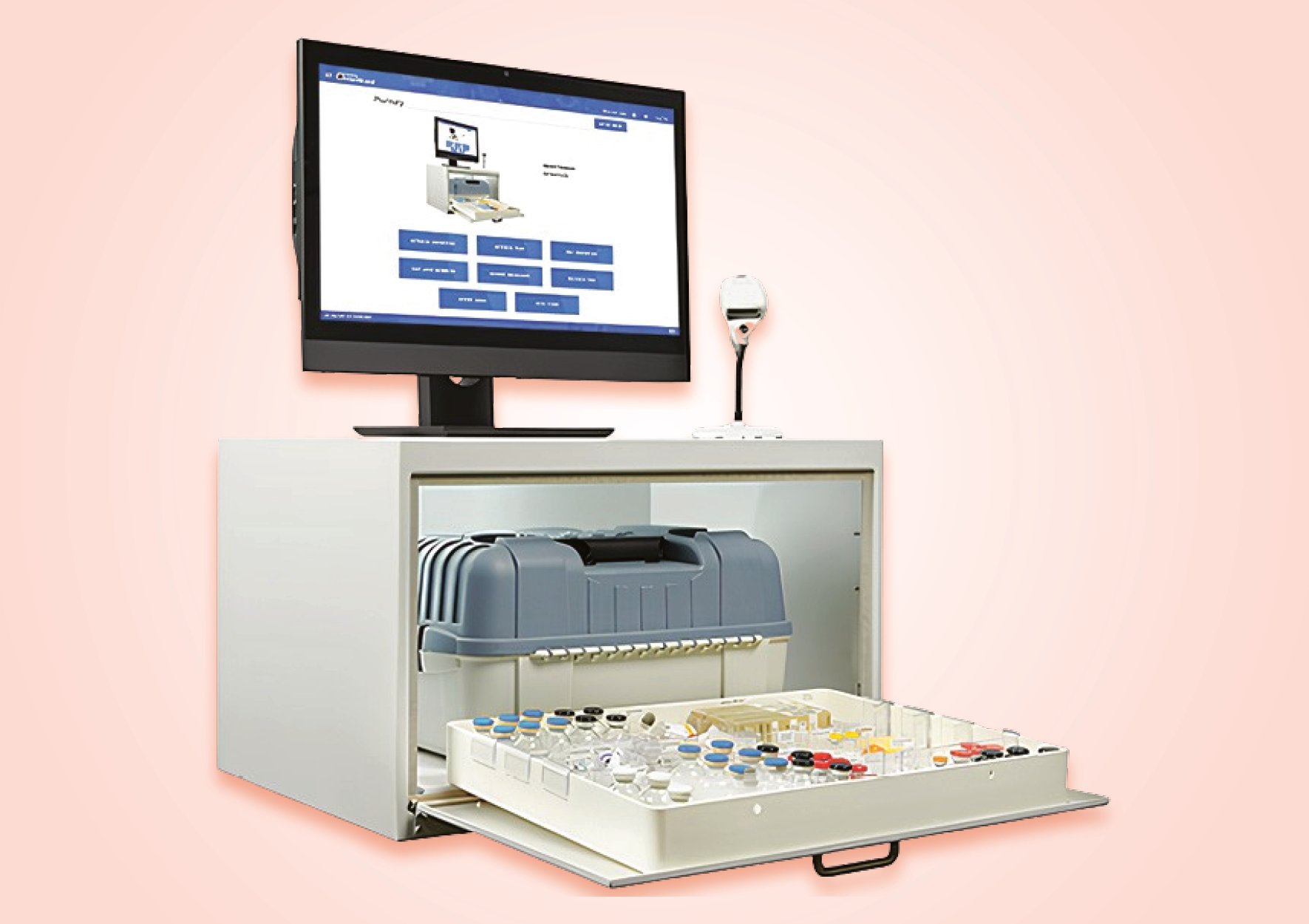- Show Menu
- Contact Us
- FAQs
- Reader Service
- Survey Data
- Survey Winners
- Testimonials
- Upcoming Events
- Webinars
- White Papers
Product Spotlight: STELLARA from bioMerieux: Web-Based Patient Therapy Management Software
In order to provide a high standard of medical care for his or her patients, it is critical that every health-system pharmacist address the challenge of ensuring accurate drug prescribing and thorough patient follow-up. Inappropriate medications or dosages can result in extended hospital stays or even death. Adverse drug events (ADEs) not only endanger the wellbeing of the patients, but also waste time and money. According to articles in JAMA (1997; 277: No 4) and AJHP (2001; 58: 1126-32), on average, each adverse drug event (ADE) adds between $2,200 and $4,000 the the cost of a hospital stay. In fact, according to the Alliance for Pharmaceutical Care, for every dollar spent in the U.S. on medication, $1.60 is incurred in correcting drug issues.
St. Joseph Medical Center, a member of Franciscan Health System in Tacoma, Washington, is a 330-bed, Level 2 trauma, 700 CABG, BMT unit, and is generally cited as one of the top 100 hospitals in the United States. As part of our ongoing efforts to deliver the best patient care through patient safety initiatives, we determined that it was advisable to implement an intelligent patient therapy management system.
After evaluating the health system’s current process, and considering several newer patient management systems, we initiated a 2.5-year project utilizing the TheraTrac 2 system from bioMe?rieux, Inc. When bioMe?rieux then upgraded the technology to a more robust, Web-based application platform with advanced functionality, Franciscan Health System, as a successful TheraTrac 2 user group, was approached about participating as a clinical trials site for STELLARA. STELLARA is a clinical intervention and patient monitoring software that provides knowledge-enriched, infectious disease-specific recommendations to clinicians for medication treatment management based upon individual patient profiles, integrated lab results, and hospital formularies.
The TheraTrac 2 system had good functionality but the Web-based STELLARA provided more depth, versatility, and mobility via PDAs and tablet PCs. The real-time connectivity we had with the hospital’s pharmacy systems and bioMe?rieux medical diagnostics such as BacT/Alert and VITEK was now enhanced by a more complete patient view that included all results provided by the laboratory information system. STELLARA can also access the Internet for reference citations associated with therapy or best practice recommendations.
This software also offers our clinicians access to data across the hospital or health system, allowing them to identify trends of bacteria and antibiotic susceptibility/resistance in our local environment. The antimicrobial therapeutic recommendations provided by STELLARA are supported by actual citations and Web links to journal articles and research sources. Additionally, STELLARA provides an automatic alert if a drug interaction is likely, which increases the opportunity for timely intervention and decreases the chances of an ADE. The software also allows us to customize alerts or alarms from any drug therapy, micro, or lab screen.
The patient management software is ideal for the Franciscan Health System because it is available in four performance levels (or E?tages) to fit the needs of any size hospital. Additional levels are available to upgrade the system to fit a hospital’s future needs. Each E?tage builds upon the capabilities of the level before it.
E?tage 1 is a standalone PDA application that combines Antibiotic Assistant, an integrated infectious-disease knowledge base using an institution’s own antibiograms and antibiotic formulary, and Dosing Assistant, an antibiotic intervention tool that uses an institution’s formulary in concert with Antibiotic Assistant. This E?tage also provides for the aggregation of patient data on a HIPAA-compliant Web server, antibiotic intervention documentation, actionable results for optimizing antibiotic medication management, and handheld software downloaded from a user-specific website.
E?tage 2 offers the features of E?tage 1, with the addition of a desktop and PDA application with secured access from any Web browser, four automated microbial alerts, and the ability to export data to desktop software applications. E?tage 3 adds 25 pre-programmed alerts, plus antibiotic intervention recommendations with decision logic and references, individualized patient rosters, and a wireless PDA option. E?tage 4 offers 90 pre-programmed alerts and alert subscription management.
Once completing a successful trial phase, Franciscan Health System selected STELLARA as the patient monitoring software for its three hospitals: St. Joseph Medical Center as well as St. Clare Hospital, a 106-bed community hospital in Lakewood, Washington, and St. Francis Hospital, a 110-bed community hospital in Federal Way, Washington.
STELLARA aligns with Franciscan’s primary and secondary initiatives of reducing ADEs and improving patient safety, while managing the related costs (medication management, IV-PO switching, appropriateness of antimicrobial therapy regimens, etc.), and ultimately, reducing the length of stays.
STELLARA offers our department mobility through its Web-based application and demonstrates a clear return on investment for our health system, as it can provide reports on its own cost recovery and savings. The STELLARA software will play an important role in creating better records for our health system, which has become vital in today’s “pay for performance” environment. Our clinical interventions increased 9% in the three-month period between December 2004 and February 2005, when compared to the same three-month period the year before. Meanwhile, our census is up less than 2%. So this real increase in clinical interventions is the result of STELLARA identifying additional opportunities for pharmacists to make such interventions.
J. Kelly Martin, PharmD, is the regional pharmaceutical care manager for the Franciscan Health System in Tacoma, Washington. He completed his BS degree in pharmacy at Washington State University, and his doctor of pharmacy degree at the University of Washington. Dr. Martin also serves as a clinical assistant professor at the University of Washington School of Pharmacy.
Like what you've read? Please log in or create a free account to enjoy more of what www.pppmag.com has to offer.








